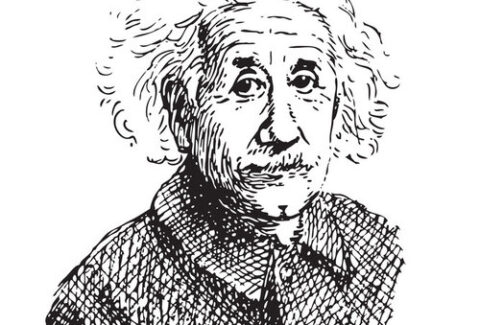Honoring our Clinical Mentors: My letter to Leo Bernhardt, MD
When I was in psychiatry residency, the training director, Dr. Rapaport, once asked me, “What can I do to best support you?” She must have seen something in me because my response to this led to the best gift of all — Dr. Bernhardt.
Dr. Bernhardt:
One Wednesday afternoon, you sat with me for hours, until 9 o’clock that night, reading my notes, giving me feedback and asking me questions. You taught me in such a way that no one else had, a way that I felt, and thought, not only suited me the best but was the right way to teach medicine. You were patient with me as I considered my responses to your questions. Little did I know then that you were guiding me through the Socratic Method, using my answers to help me identify the gaps in my knowledge, point me to resources to further my understanding, and quiz me on what I learned. Your sophisticated clinical skills coupled with an intuitive sense of what I needed most are truly gifts that you shared with me. Because of this, I am here today to let you know that this invaluable experience set a tone and foundation in my career that has allowed me to give of myself to others.
As you asked me questions, I was forced to think. Yet I was not afraid that I might answer wrongly because I simply felt safe. I knew that in my mistakes, you would encourage me to explore and discover the answers on my own so that I could build on, own, and grow with them. You were also an example of disciplined and critical thinking, specifically about justly considering the consequences of prescribing psychotropic medications. You taught me to ask myself the following when confronted with this — “What exactly am I doing here?”; “What exactly am I treating here”?; and, “Why am I doing this instead of that?”
 Furthermore, you sharpened my diagnostic skills by reminding me to avoid diagnosing others based on mere suspicion or on the basis of my preconceived notions (You emphasized: You think, You suspect, You believe). Rather, you taught me to consider a holistic approach of the circumstances, diagnostic criteria and the trappings of “look alikes”. Most important, you brought the theoretical and clinical into perspective — of the human being in front of me. In this vein, you always said, “Read. Most doctors just don’t, and whoever does is automatically put ahead of the curve is able to better help patients.”
Furthermore, you sharpened my diagnostic skills by reminding me to avoid diagnosing others based on mere suspicion or on the basis of my preconceived notions (You emphasized: You think, You suspect, You believe). Rather, you taught me to consider a holistic approach of the circumstances, diagnostic criteria and the trappings of “look alikes”. Most important, you brought the theoretical and clinical into perspective — of the human being in front of me. In this vein, you always said, “Read. Most doctors just don’t, and whoever does is automatically put ahead of the curve is able to better help patients.”
Dr. Bernhardt: I have had several mentors that touched my life, but none have done so in such a way that is rather inexplicable like you. For this reason I would like to say: thank you.
Mardoche









